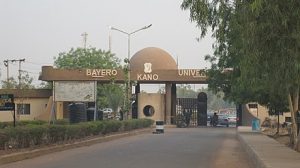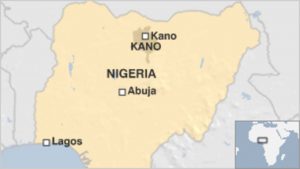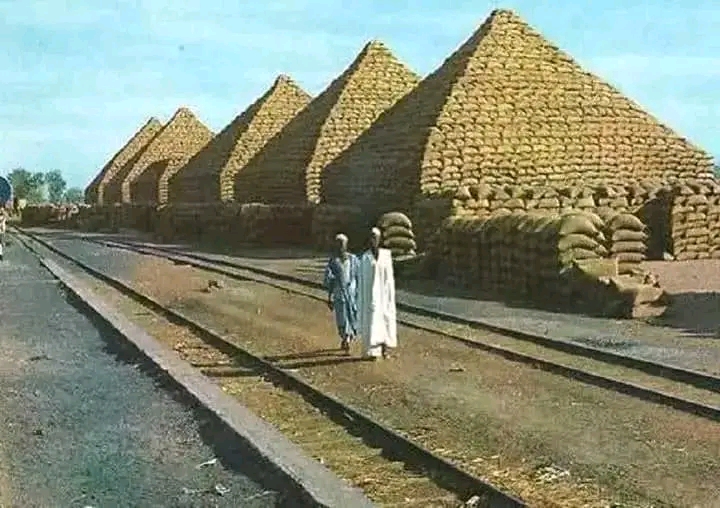By Ambassador Usman Sarki
Nigeria and West Africa owe so much to Kano. I write to celebrate Kano in the panegyric to this ancient city in the heart of the Central Sudan. I praise the peace and opportunities that Kano has fostered in the midst of turmoil and unrest across Northern Nigeria. Objectivity and candour are the hallmarks of historical narratives. Writing about Kano will be an undertaking that must elicit careful recollections and sincere attention to its conditions past and present.
To describe Kano City as a “melting pot” is an understatement. Kano is the crucible, the foundry in which African civilization was forged and fashioned over a millennium. The welcoming countenance of the City and the elastic disposition of its people, made Kano a favoured destination for strangers from far and near, who lived cheek by jowl with the natives and prospered in its ample felicity.
Kano is actually the Rome of Africa, whose antiquity is lost in the mist of time and the dimming memories of generations of people that have inhabited that space in Northern Nigeria. Kano is so ancient, that there are no literary or folkloric recollections of its being a village or an embryonic settlement of people. Kano seems to defy time itself and proclaim its defiance in its pulsating energy and ever expanding circle of growth and increasing importance.
 It is this timelessness that gives Kano City its aura and character of invincibility and importance, and the undeniable primacy of place that it has acquired among all the cities of Africa perhaps next to Cairo. In its more than a thousand year history as a continuously settled city, Kano presents us with a glimpse of the past glory that Africans in this part of the world have been able to attain. It also intimates us with the difficulties that they were able to surmount, as well as the prospects that Kano offers today towards salvaging of the fortunes of Nigeria as a nation of civilized entities.
It is this timelessness that gives Kano City its aura and character of invincibility and importance, and the undeniable primacy of place that it has acquired among all the cities of Africa perhaps next to Cairo. In its more than a thousand year history as a continuously settled city, Kano presents us with a glimpse of the past glory that Africans in this part of the world have been able to attain. It also intimates us with the difficulties that they were able to surmount, as well as the prospects that Kano offers today towards salvaging of the fortunes of Nigeria as a nation of civilized entities.
There is no city like Kano in the vast expanse of Sub-Saharan Africa. Kano has always been the gravitational point to which countless numbers of people from different cultures and climes have resorted to, in order to find their various purposes and niches in life. As a commercial hub of preeminence, Kano offered the ready prospects for the Levantine and Syrian traders, the Jews looking for opportunities elsewhere, the European adventurers and explorers, the North African merchants and scholars, and of course, Africans from Mali to the Sudan, who called at that City to find fulfillment and actualise their dreams.
Kano was the undisputed entrepôt of the Trans-Saharan trade since antiquity. Its receptive ambiance and captivating offerings to the weary travelers beckoned people from as far away as Morocco, Senegal, Libya, Mali, Lebanon and Syria, Sudan and Egypt, Germany and England, and the regions to the south bordering the Atlantic Ocean. Borno of course was a near neighbour with which relations of amity and felicity were established across centuries and generations of people centered around intellectual exchanges and learning.
Kano today occupies a preeminent place in Nigeria’s and West Africa’s commercial, political, intellectual and cultural development. Its teeming population provides the ready human resource to meet all exigencies and prospects of production, exchange, consumption and application of labour and talents to growth and sustainability of bountiful and fulfilling expectations. Since time immemorial, Kano has been an intellectual citadel whose contributions to the advancement of science, agriculture, industry, literature, architecture, town planning, religious studies, linguistics, geography and other fields of learning and endeavour have been acknowledged by foreign as well as native observers alike.
 Kano is the hub of the dynastic rule that has been established in many West Africa kingdoms, and the antiquity of the present Emirate system in Kano lends luster and glory to Nigeria and the whole of Africa. Kano’s contributions to the development of the larger West African trading system and the increase in the material fortunes of Nigeria and the neighbouring countries cannot be casually quantified. Its teeming millions are the engines that drive the prosperity and affluence of the City and the North of Nigeria and neighbouring countries as well.
Kano is the hub of the dynastic rule that has been established in many West Africa kingdoms, and the antiquity of the present Emirate system in Kano lends luster and glory to Nigeria and the whole of Africa. Kano’s contributions to the development of the larger West African trading system and the increase in the material fortunes of Nigeria and the neighbouring countries cannot be casually quantified. Its teeming millions are the engines that drive the prosperity and affluence of the City and the North of Nigeria and neighbouring countries as well.
Kano’s limitless prospects have earned it the accolade of the “belly of the elephant”, which symbolises affluence, availability and diversity of activities and opportunities that it contains to be harvested by all comers with diligence as typified by its industrious denizens. Kano is a City that never sleeps, where the habits of buying and selling, manufacturing, exchange and logistics, are ingrained in the people who are accustomed from birth to useful endeavours.
No vocation is deemed insignificant or demeaning to the people of Kano, so long as it is legitimate and does not contradict cultural and religious sensibilities. The industriousness of the people and the range of the products of their labour have been recorded in the past and is evident to us today. Modern visitors can marvel at the textiles and metal works in Kano as travelers of yore did. They can admire the fastidious attention to detail in the leather works of the City.
They can attest to the high quality of husbandry and agriculture in its fertile spaces. The celebrated dying pits of Kano are attested to be a thousand years old and are still maintained in their pristine condition. Kano has not known famine or want. It is self-sufficient in its needs and can afford to allow supplies from other lands and climes to enter its ample spaces as part of trade and exchange.
Kano’s markets are among the most ancient centers of commerce in Africa that helped to create wealth across countless generations and professions. Commerce necessitated the cultivation of peace and trust in the people of Kano. Kano can yet reinvent itself. Its countless industries now left dormant, can refreshingly bring about the regeneration of Nigeria if revived and brought into full activity. Kano needs electricity to power its economy. It needs modern infrastructure and facilities to make it innovative and better attuned to 21st century economic development.
Kano’s contributions to Nigeria’s political evolution is well known and are beyond the reproach of adversity or criticism. The cultivation of radical politics and progressive affiliations have made Kano the hub of activism and political awareness in Nigeria. Kano perhaps more than any other metropolis, has shaped the political culture in Nigeria to the extent that it serves as the barometer of politics in the country today. Kano people may seem busy with their everyday chores and pursuit of their livelihoods, but they are also attuned to the happenings around and beyond their precinct, as evidenced by their avid consumption of news about current events.
Their political awareness and acute consciousness makes them the most decisive and influential force in all Nigerian elections! Today, Kano’s greatest legacy is its contribution to fostering of peace in West Africa. The welcoming disposition of its people and accommodating habits that the City has cultivated for a millennium, have enhanced the prospects of peaceful coexistence among all the inhabitants. This is a value to be cherished and for which Kano City should be praised.
The reader of this piece might find a new interest in studying aspects about Kano, or resume the search for its place in history. If such is your purpose, then your time is not wasted. Kano offers many prospects of inquiry to fill the curiosity of the most diligent researcher into any subject matter. Let me start you off by referring you to the book by Mr. E. D. Morel, “Nigeria: Its People and its Problems”, in which so much of interest was written about Kano by the diligent author. It was published in 1911 and still makes a pleasant and rewarding read!




























